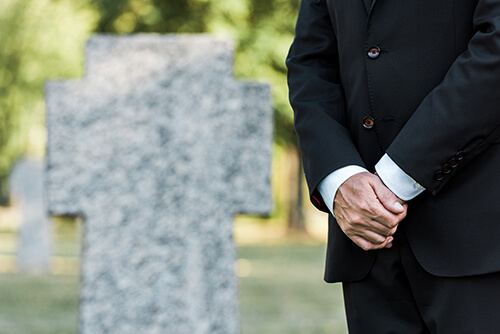When a Child Dies: Funeral Decision-Making for Divorced Parents in New Jersey
Arrangements and Disagreements over a Child’s Funeral when Parents are Divorced in New Jersey
 Losing a child is one of the most intense, horrific experiences human beings can have. Whether the child is 3 or 30 years old, their death initiates a series of overwhelming sadness and grief. Children are perceived by society as a gift to their parents, and when that gift is taken away, comfort and peace seem unattainable. As part of grief, bereaved parents ride a roller coaster of anger, frustration, deep sorrow, and more, often finding it impossible to express their inner emotional turmoil. Grieving parents’ reactions may seem dramatic, hostile, and impulsive. For them, their child’s death is such an earth-shattering event that their decisions may not appear logical.
Losing a child is one of the most intense, horrific experiences human beings can have. Whether the child is 3 or 30 years old, their death initiates a series of overwhelming sadness and grief. Children are perceived by society as a gift to their parents, and when that gift is taken away, comfort and peace seem unattainable. As part of grief, bereaved parents ride a roller coaster of anger, frustration, deep sorrow, and more, often finding it impossible to express their inner emotional turmoil. Grieving parents’ reactions may seem dramatic, hostile, and impulsive. For them, their child’s death is such an earth-shattering event that their decisions may not appear logical.
When a minor child (under 18 years of age) passes, there is additional tragedy regarding the experiences they will never achieve, such as graduation from school, family vacations, birthdays, etc. Small children are visualized as innocent, defenseless creatures, undeserving of any harm. Older children’s lost achievements are grieved as well: graduation from college, leading a professional life, getting married, and having children. No matter their age, the death of a child can put the parents and their family in a tailspin. No one is ever prepared for the death of a loved one, especially when it is their child.
The planning of funeral arrangements and how the body will be treated are excruciating decisions that must be made. When the parents are divorced, agreeing on anything can be a chore, but when nerves are raw, and emotions are high due to profound grief, disagreements can ensue. Residual hostility, a difference in religious beliefs, and financial issues can cause a rift between grieving divorced parents, leaving them unable to carry out the funeral services for their child without the court’s interference.
Legal Hierarchy for Decision-Making in Child Funeral Arrangements for Divorced Parents in NJ
Suppose an adult child died before appointing someone to control the disposition of their remains and their funeral. In that case, according to N.J.S.A. 45:27-1 to -41, also known as the New Jersey Cemetery Act, the hierarchy of decision-making power begins with the surviving spouse, the decedent’s adult children, the surviving parents, the decedent’s siblings, and any other next of kin in order of closeness of relation. New Jersey does not directly state who has the ultimate authority when two members of the same priority class disagree about funeral arrangements, such as divorced parents. However, existing case law offers further guidance and factors for consideration when parental disputes over child remains arise.
Resolving Parental Disputes over a Child’s Funeral Arrangements in NJ Court

Important Factors for Consideration when New Jersey Parents Disagree about a Child’s Funeral
The Appellate Division listed the factors that should be considered when selecting the person who can make decisions about a child’s funeral arrangements and burial. The parent with the closest relationship to the child is more likely to be aware of the decedent’s preferences and should be allowed to decide how the arrangements will be made. This parent is more likely to follow the decedent’s religious practices and cultural traditions pertaining to the funeral arrangements. Lastly, the parent who had a closer relationship with the decedent can also be named the estate’s administrator, acting in its best interests.
Can Funeral Arrangements Be Included in Custody Plans in New Jersey?
Any plans regarding the death and subsequent funeral arrangements are ruled by the Probate Court, not the Family Court, and therefore, cannot be included in a custody plan.
Contact Montanari Law Group for Help if You Disagree with Your Ex about Your Child’s Funeral in Little Falls, NJ
Losing a child is a devastating experience that can be made even worse when there are disputes regarding how their final rest will be memorialized. At The Montanari Law Group, our seasoned family law attorneys have helped many clients like yourself who are struggling to find the legal answers to your questions regarding the passing of your child. Our attorneys are skilled in family law, custody law, and probate law when these cases intersect. We will listen to you with empathy and discuss your options for resolving a disagreement if you are divorced from your child’s other parent and you disagree over the funeral arrangements in Woodland Park, Haledon, Wyckoff, Montvale, Fort Lee, Jersey City, Montclair, Essex Fells, Wayne, or elsewhere in Northern New Jersey. We want to make sure you are at peace and can remember your child in the best way possible.
If you or someone you know is struggling with their former spouse to make the decisions necessary regarding their child’s untimely death, call us for a free consultation today at (973) 233-4396 or make an appointment online.
